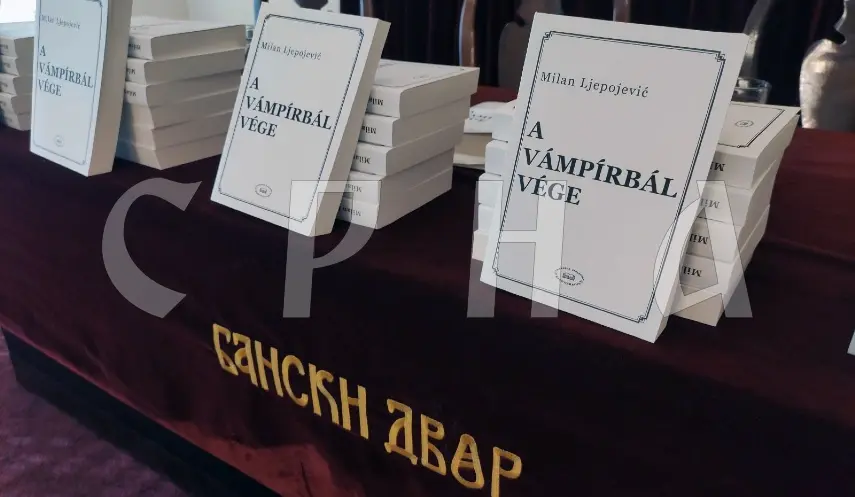HUNGARIAN EDITION OF THE BOOK "THE END OF THE VAMPIRE BALL" PRESENTED
Republika Srpska - Banja Luka - Publishing
06/14/2025
20:09

BANJA LUKA, JUNE 14 /SRNA/ - The Hungarian edition of the book "The End of the Vampire Ball" by Milan Ljepojević, which documents crimes and acts of aggression against the Serb people during the 20th century, was presented today at the Banski Dvor Cultural Centre in Banja Luka.
Ljepojević stated that the book is about the genocide committed against Serbs, Jews, and Roma in the Independent State of Croatia /NDH/ between 1941 and 1945, the events in Srebrenica between 1992 and 1995, the NATO bombing of Republika Srpska in August and September 1995, and the 1999 bombing of the Federal Republic of Yugoslavia.
"The aim was to highlight, through these events and acts of aggression, who was the victim and who the aggressor. We Serbs are a people who have always lived on our own land, defending freedom and the right to live and survive in this region," Ljepojević told the press.
He believes that Republika Srpska itself was formed as a response to the crimes committed against Serbs during World War II, and that the Serb people will never again allow themselves to be victimized as it was before.
"In addition to fostering a culture of remembrance, this book serves to ensure that such crimes and genocides against Serbs are never repeated. It is not about vengeance," he added.
Ljepojević noted that the translation and publication of the Hungarian edition was supported by the Office of Republika Srpska President, Milorad Dodik.
"With this translation, the Hungarian public will now also have an opportunity to learn more about the crimes committed against the Serb people in the 20th century," he said.
Professor Saša Mićin from the Faculty of Security Studies in Banja Luka, who reviewed the book, said the Hungarian translation represents a form of expanding awareness and factual truth regarding the atrocities that befell the Serb people during the 20th century.
"This book provides a retrospective of the crimes committed against Serbs during that period. While Serbs are familiar with this truth, it is important to spread it further. This translation will help others learn what happened to Serbs," Mićin emphasized.
He concluded that these truths, long swept under the rug by the West, must not remain unspoken.






